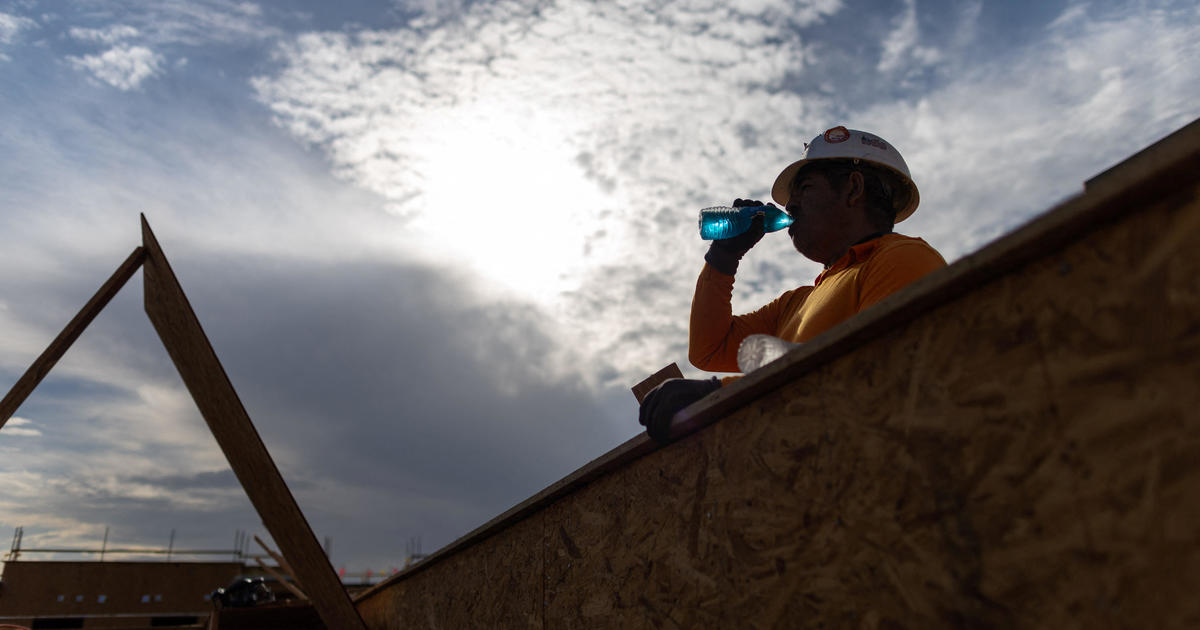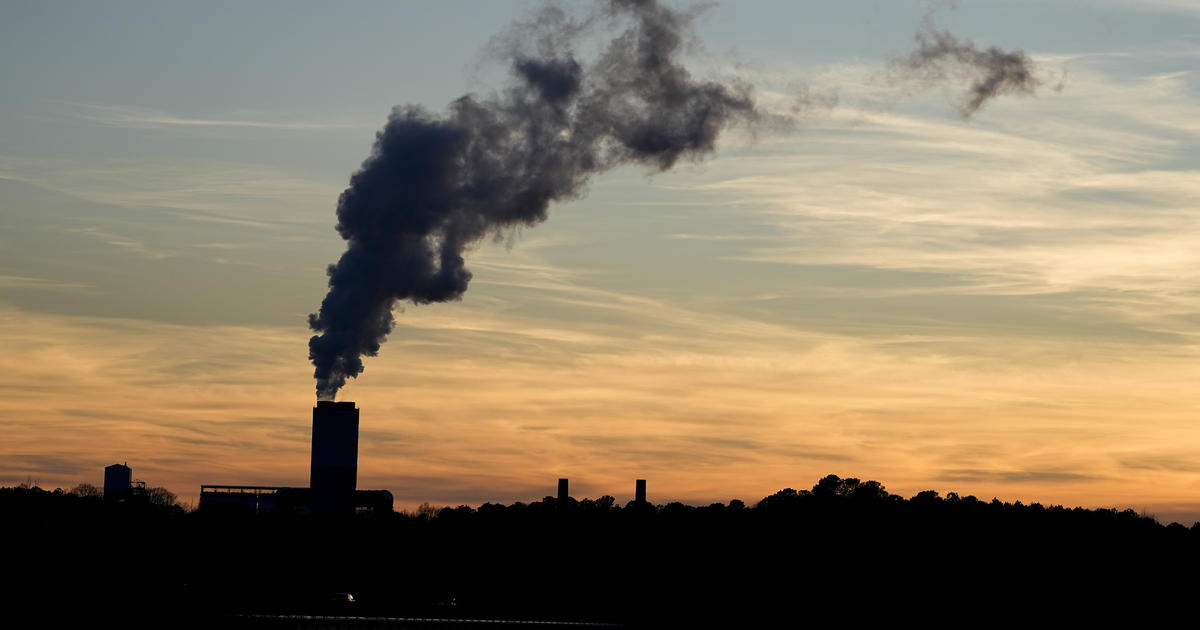The devastating economic toll of severe heat waves
Western Europe is reeling from the hottest temperatures on record as a third of the U.S. buckles down for a heat wave of its own.
Disastrous heat waves are becoming increasingly more common with global warming — killing people, damaging infrastructure and straining energy supplies. A growing body of research shows that extreme heat has long-lasting effects not just on population health but on local economies. With climate change making heat waves more severe and more frequent, here are some of the effects of these temperature shocks.
Melting infrastructure
Heat waves in temperate countries like the United Kingdom can have disastrous effects on manmade constructs that are not designed to withstand extreme heat. Less than 5% of households in the typically cool nation have air conditioning, with builders more often concerned about retaining heat rather than repelling it.
In Luton, England, a city 30 miles north of London, record-high temperatures melted an airport runway, shutting down flights for several hours. Last year's scorching heat dome in the Pacific Northwest, another typically temperate region, cracked roads, while low air quality led a public pool to shutter. The excessive heat melted power cables in Portland, leading the city to shut down rail service.
Elsewhere, high heat has buckled the steel tracks of railroads, slowing down passenger trains and freight shipments.
Strained health systems
Heat takes a massive toll on human bodies, exponentially increasing the risk of death from heatstroke or other causes.
During Europe's 2003 heat wave, 70,000 people died, setting a grim record for the deadliest climate-related event in a developed country, according to Brian Stone, a professor at the Georgia Institute of Technology. During the heat dome in the Pacific Northwest last year, 1,000 people died who otherwise wouldn't have, and the number of people coming to hospitals with heat-related illnesses increased by a factor of 69, said Kristie Ebi, professor at the Center for Health and the Global Environment at the University of Washington.
"How do you cost years of life lost?" she said, which is incalculable for the families of people who've died. Actuaries and government agencies however put the value of an American life at about $10 million, bringing the economic toll of a heat wave quickly into the billions even before factoring in impacts on health, work output and food systems.
The consequences for hospitals can strain already-overtaxed systems, Ebi said. One Seattle hospital nearly ran out of ice in its efforts to aid patients suffering from heatstroke. Another had to shut down its operating room for several days because they weren't able to cool it down sufficiently to perform surgery safely.
Output reduction
Even when people avoid the worst health effects of heat, it takes a toll on their productivity. One recent study found that extreme summer heat reduced states' economic output, with states' GDP falling by 0.25% for every 1 degree Fahrenheit in above-average summer temperatures.
"When it gets very hot, people don't work that much," noted Ebi. However, the impact is different for different classes of workers, she said.
"People who have a salary will slow down. People who are paid by the piece have an economic incentive to keep working, and they may keep working until they harm themselves," she said. That's particularly troublesome for outdoor workers like agricultural workers, delivery people or construction laborers.
Heat can even take a toll on a worker's future earnings, with studies showing that students learn less in schools on high-temperature days and that fetuses exposed to high heat in utero have lower earnings as adults.
Reduced agricultural productivity
Crops, like human bodies, thrive within a fairly narrow range of temperatures. While a small temperature increase can lead some plants to produce more, heat over 90 degrees Fahrenheit leads to a sharp drop in yields for staple grains like corn, soybeans and cotton.
One recent study estimated the effects of a global temperature increase of 2 degrees Celsius, which the world is projected to hit in the coming decades. With that level of warming, agricultural profitability for the Eastern U.S. drops by 60%, found the study by University of Arizona professor Derek Lemoine.
That's doubly problematic when combined with drought, which often accompanies high temperatures. Nearly half of Europe is currently under a drought warning, which the European Commission said could lead to crop shortages.
Problems for shipping and industry
This week's heat wave comes amid historically low water levels in Europe's rivers, which are critically important for freight.
Water levels on the Rhine, a major thoroughfare that links industrial regions in Switzerland, Germany and Denmark, are at their lowest since at least 1970, Cedric Gemehl of Gavekal Research said in a note. That means "greatly reduced freight traffic, bottlenecks and higher delivery charges," Gemehl wrote. He noted that a less-severe fall in 2018 led to a 15% drop in pharmaceutical and chemical output in the second half of that year.
Less water in the river means less hydroelectric power, which is running well below its typical levels in France, Italy and Spain, Gemehl said. Likewise for industrial output as well as Europe's nuclear plants, both of which rely heavily on river water for cooling.
While each of these issues is potentially manageable on its own, they are coming on top of existing supply snags and a looming energy crisis, worsening this year's outlook.
'[T]he effects of the heat wave are hitting the European economy at the worst possible time, compounding existing supply shortages and rendering Europe's energy equation even more precarious," Gemehl said. "In economic terms, Europe's current hot spell is anything but sunny."



